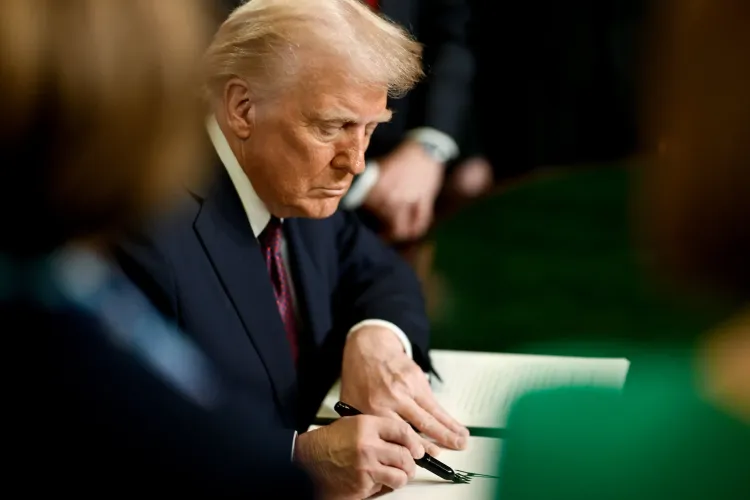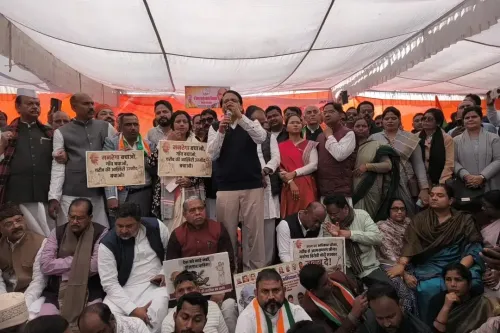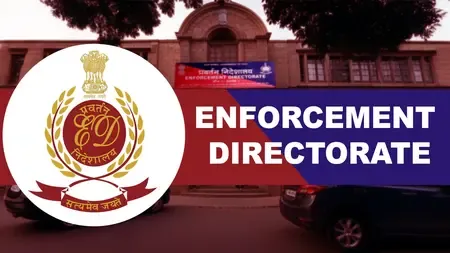Did Trump Designate Antifa as a 'Domestic Terrorist Organization'?

Synopsis
Key Takeaways
- Trump's order labels Antifa as a domestic terrorist organization.
- Critics question the legality of such a designation.
- The move may escalate tensions surrounding political violence.
- Legal experts highlight the absence of a framework for designating domestic terrorist groups.
- This action follows a long history of Antifa's involvement in political protests.
Washington, Sep 23 (NationPress) US President Donald Trump has officially signed an executive order that classifies Antifa as 'a domestic terrorist organization', a decision that some legal experts argue may lack the necessary authority.
The document from the White House states, 'President Donald J. Trump is correct: the issue of violence stems from the Left.' This designation targets Antifa, described as a network of radical extremists aiming to undermine the government through violence and agitation.
It details instances of the movement's 'long history of terrorizing our communities', including assaults on US Immigration and Customs Enforcement officers, law enforcement, attendees of conservative events, and supporters of Trump.
The executive order instructs the federal government to 'investigate, disrupt, and dismantle' all illicit activities associated with Antifa or anyone claiming to represent them. It also calls for 'necessary investigatory and prosecutorial actions' against those financing such operations.
The document claims, 'Antifa's terror is a manifestation of the Radical Left's violence that has infiltrated the nation in recent years,' fueled by relentless falsehoods and malicious attacks against Republicans from unhinged Democrat politicians, well-funded leftist organizations, and their media allies. It further alleges that conservative activist Charlie Kirk was murdered by a 'Radical Left terrorist.'
However, Mary McCord, a former acting head of the Justice Department's national security division, remarked to The New York Times that 'there is no legal authority to officially label a domestic group as a terrorist organization, even if Antifa is considered an organization and not merely an ideology.'
A report from The Washington Post highlighted the absence of legal avenues for designating domestic terrorist groups in the US, raising alarms among experts that this action could lead to a broader crackdown on the political left, as reported by Xinhua news agency.
During his first term in 2020, Trump had previously indicated plans to classify the 'Antifa' movement as 'a terrorist organization', primarily in response to nationwide protests and unrest following the police killing of George Floyd. Yet, no tangible actions were taken.
The latest executive order comes amidst a heated national discussion concerning political violence following Charlie Kirk's death. In rebuttal to Democrats' claims that both sides engage in political violence, Trump recently asserted that 'most of the violence is on the left.'










